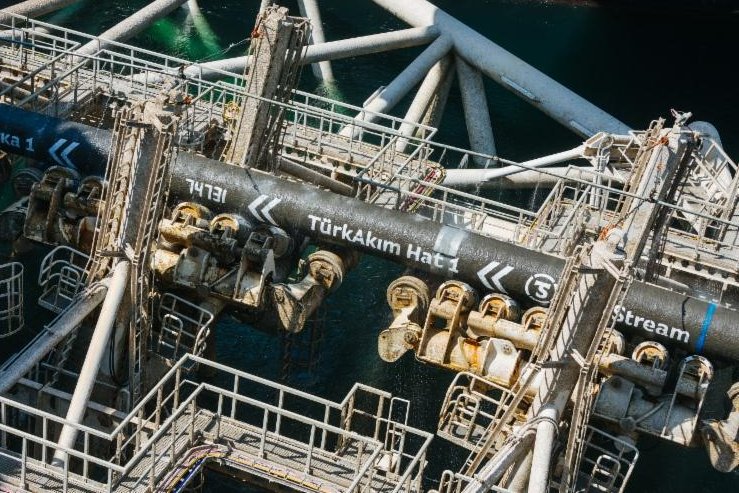Russian energy company Gazprom completes a section of a gas pipeline running through Turkish waters. Photo courtesy of Gazprom
April 30 (UPI) -- Components of a natural gas pipeline that will carry Russian reserves through Turkish waters are completed, Russian energy company Gazprom said.
"Today at the Black Sea coast of Turkey, the deep-water pipelay for Line 1 of the TurkStream offshore gas pipeline has been completed," the Russian company stated Monday.
For Russia, the link through Turkey is part of its growing ambition to add diversity to export arteries to the European market. Most of Russia's gas to Europe runs through Soviet-era pipelines in Ukraine, where geopolitical issues add a layer of risk.
The pipeline's route would mirror the now-abandoned South Stream project and run under the Black Sea to Turkey and then to the European market. South Stream was scrapped because of concerns about Russian business practices expressed by some European countries.
Turkey, meanwhile, aims to capitalize on its geographic position by becoming an energy bridge between Central Asian and Middle East suppliers and the European market.
Construction vessel Pioneering Spring moved into the Turkish exclusive economic zone in November. Gazprom said the vessel is placing pipe at a rate of 2.6 miles per day.
"Since May 7, 2017, when we started the pipelaying campaign, the total of 720 miles of pipes has been laid, which is 62 percent of the overall gas pipeline length," Gazprom Chairman Alexei Miller said in a statement. "Needless to say, TurkStream will play a significant role in strengthening energy security of Turkey and Europe."
Elsewhere, Gazprom plans to double the twin Nord Stream network through the Baltic Sea to Germany. Apart from European anti-trust concerns over Gazprom, the Nord Stream project has also drawn opposition from the United States, which is starting to tap into European markets with liquefied natural gas. Liquefied natural gas is a super-cooled product shipped over maritime transit routes, leaving it less exposed to geopolitical risk than piped gas.
The U.S. State Department said that any company that engages in Nord Stream could run afoul of the Countering America's Adversaries Through Sanctions Act, which imposed sanctions last year on Iran, Russia, and North Korea.
Gas could flow through TurkStream by late 2019.















